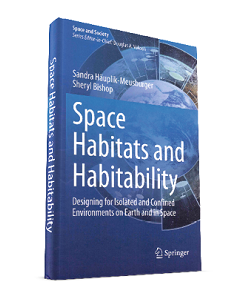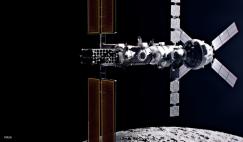The design of space habitats has been an issue in space engineering at least since NASA hired industrial designer Raymond Loewy to help craft the interior of the Skylab space station. By all accounts he did a great job, but the subject has moved on significantly since the late 1960s, as illustrated by the authors of this book.
Subtitled “Designing for isolated and confined environments on Earth and in space”, this academic but readable volume is a guide to the concepts of habitability and human factors in relation to space habitats. In seven information-packed chapters, it surveys a number of terrestrial ‘analogue’ studies, missions and facilities along with actual space experience gained on missions from Skylab and Mir to the International Space Station.
The well-structured text is illustrated with colour photographs and diagrams. Each chapter has a copious list of references for further research and there is a useful index. If there is one criticism of the book’s design, it would be with the long passages of italicised text used for the answers to survey-questions. It does nothing to aid readability and gives the impression of being somehow ‘less important’ than the main text.
That said, this is a book that all professionals involved with future crewed spacecraft design should read. As it says in a foreword to the book, “We can keep space crews alive and working productively in the confines of spacecraft, but we have not yet learned how to give them a home away from home”. A call for more soft furnishings perhaps?











